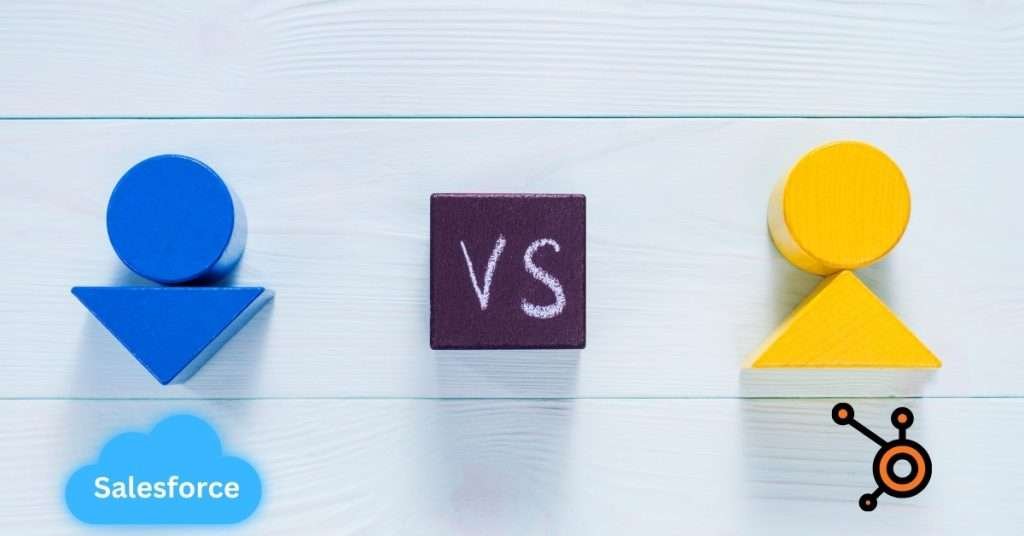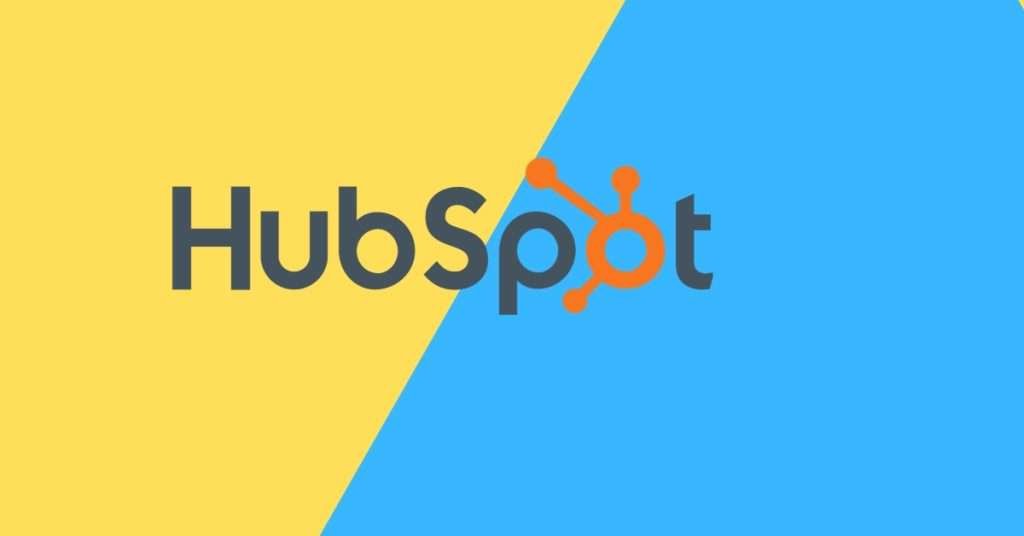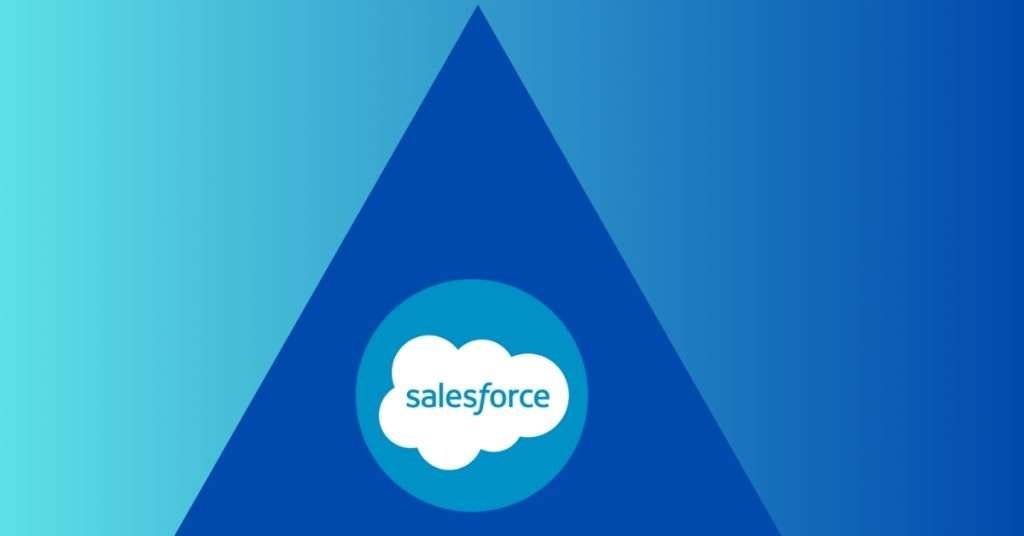In the dynamic world of Customer Relationship Management (CRM), businesses strive to harness the capacity of cutting-edge tools to facilitate their techniques, enhance customer exchanges, and drive earnings expansion. Two behemoths in the CRM arena, Hubspot vs Salesforce, prospect out as frontrunners, each offering a suite of elements designed to achieve the diverse prerequisites of businesses.
In this comprehensive comparison, we will delve into the complications of Hubspot vs Salesforce, examining their key characteristics, functionalities, pricing models, and altogether suitability for different business sizes and enterprises. By the end of this examination, you’ll be authorized with the knowledge to create a knowledgeable conclusion on which CRM justification aligns politely with your business intentions.
What is CRM software?
CRM, or Customer Relationship Management, software is a powerful tool developed to help businesses in managing and nurturing their connections with customers. It performs as a centralized hub for assembling, arranging, and analyzing customer data, delivering proficiency that empowers associations to improve customer conversations. CRM software normally comprises features for contact management, lead pursuit, sales automation, customer support, and analytics.
By decreasing customer data, CRM enables industries to comprehend customer provisions, personalize exchanges, streamline sales processes, and finally foster long-term customer loyalty. It plays a pivotal position in enhancing contact, stimulating efficiency, and driving overall business development by promoting powerful and more substantial connections with customers.

Importance of CRM software
Customer Relationship Management (CRM) software has become a significant tool for businesses across enterprises. Its importance stems from its mastery to consolidate and promote customer-related techniques, fostering improved exchanges, enhanced efficiency, and eventually, business growth.
Here are key explanations highlighting the significance of CRM software:
Customer Data Centralization:
- CRM software serves as a centralized storage for customer knowledge. It reduces data from various touchpoints, including interchanges, transactions, and contacts, delivering a holistic view of each customer. This centralized data hub permits businesses to comprehend customer requirements and appreciation more entirely.
Improved Customer Relationships:
- By having a 360-degree view of customer conversations, businesses can personalize their attention strategies. CRM software encourages personalized connection, targeted marketing campaigns, and tailored subsidy offerings, fostering powerful and more expressive connections with consumers.
Efficient Communication:
- CRM systems facilitate efficient communication within an organization. Teams can admit real-time customer data, contact history, and applicable notes, assuring that everyone implicated in customer exchanges is well-informed. This leads to more cohesively and conformed customer contact.
Sales Process Optimization:
- CRM software is especially valuable for sales teams. It helps in lead tracking, possibility management, and sales forecasting. With automation features, sales strategies become more streamlined, permitting sales squads to focus on high-priority leads and closing deals.
Marketing Campaign Effectiveness:
- CRM software supplies insights into customer manners and inclinations, stimulating more targeted marketing efforts. Businesses can develop segmented and personalized marketing campaigns, directing to higher conversion rates and enhanced return on acquisition (ROI).
Customer Service Enhancement:
- For customer assistance teams, CRM software proposes tools for case management, ticket tracking, and explanation tracking. It ensures that customer issues are addressed promptly and that usefulness quality is invariably high. This contributes to expanded customer satisfaction and commitment.
Data-Driven Decision-Making:
- CRM systems generate actionable insights through reporting and analytics. Businesses can analyze customer movements, sales enactment, and other relevant metrics, permitting informed decision-making. This data-driven process empowers communities to adapt procedures based on real-time information.
Workflow Automation:
- Automation features within CRM software reduce manual duties and streamline workflows. This not only saves time but also underestimates the risk of errors. Automated techniques can include lead nurturing, email movements, and follow-up tasks, enriching overall functional efficiency.
Scalability:
- CRM explanations are scalable, acclimating the growth of businesses. Whether a small startup or a large industry, organizations can scale their CRM usage to match growing customer needs and business provisions.
Competitive Advantage:
- In a competitive business landscape, having a well-implemented CRM system can deliver an important edge. Businesses that virtually use CRM software can answer more quickly to market changes, deliver superior customer experiences, and outperform competitors.

HubSpot Overview
HubSpot, founded in 2006, has developed from a marketing automation forum to a comprehensive CRM solution. Prominent for its user-friendly interface and incorporated strategy, HubSpot aims to approve businesses with tools for marketing, sales, and customer assistance.
Let’s break down the key components of HubSpot:
Ease of Use:
HubSpot is commemorated for its intuitive design, making it convenient for users with varying grades of technical expertise. The platform operates a clean and visually attractive dashboard, facilitating users to guide effortlessly through its suite of tools.
Features:
- Marketing Hub: HubSpot’s Marketing Hub proposes an expanse of tools for content composition, email marketing, social media management, and analytics.
- Sales Hub: The Sales Hub focuses on automating sales techniques, lead tracking, and performance analytics.
- Service Hub: HubSpot’s Service Hub provides features for customer approval, ticketing, and understanding headquarters management.

Salesforce Overview
Salesforce, specified in 1999, is a pioneer in cloud-based CRM explanations. Known for its strong customization capacities and scalability, Salesforce caters to businesses of all sizes.
Let’s explore the key aspects of Salesforce:
Customization and Scalability:
- Salesforce’s resilience lies in its unparalleled customization choices. Businesses can tailor the platform to satisfy their extraordinary requirements, providing a personalized CRM understanding. Additionally, Salesforce’s scalability makes it suitable for small startups to large businesses.
Features:
- Sales Cloud: Salesforce’s Sales Cloud encompasses tools for lead management, possibility tracking, and cooperation among sales teams.
- Service Cloud: The Service Cloud focuses on customer support, case management, and field service.
- Marketing Cloud: Salesforce’s Marketing Cloud delivers comprehensive solutions for personalized marketing movements, analytics, and automation.
HubSpot vs Salesforce: Feature-by-Feature Comparison
When comparing HubSpot and Salesforce, it’s essential to delve into a feature-by-feature analysis to identify the strengths and weaknesses of each CRM platform.
User Interface:
- HubSpot: HubSpot is renowned for its intuitive and user-friendly interface, providing a seamless experience for users at all technical skill levels.
- Salesforce: Salesforce offers a comprehensive but more complex interface, with a steeper learning curve for new users.
Contact and Lead Management:
- HubSpot: HubSpot excels in contact and lead management, providing a centralized database for efficient organization and tracking of customer interactions.
- Salesforce: Salesforce offers extensive customization in contact and lead management, making it suitable for businesses with complex processes.
Marketing Automation:
- HubSpot: HubSpot integrates marketing tools seamlessly, offering features like email marketing, social media management, and content creation within the platform.
Salesforce: Salesforce’s marketing automation capabilities are robust, especially when paired with tools like Pardot, enabling advanced campaign management and lead nurturing
Sales Automation:
- HubSpot: HubSpot streamlines sales processes with automation features, making it easier for teams to manage deals, automate tasks, and track performance.
- Salesforce: Salesforce’s sales automation is highly customizable, allowing businesses to create intricate workflows and automate repetitive tasks.
Customer Service and Support:
- HubSpot: HubSpot’s customer service tools facilitate ticketing, knowledge base creation, and customer feedback, ensuring a well-rounded approach to customer support.
- Salesforce: Salesforce’s Service Cloud offers comprehensive customer service functionalities, including case management, service analytics, and a customer portal.
Integration Capabilities:
- HubSpot: HubSpot integrates with a variety of third-party applications, but its ecosystem may not be as extensive as Salesforce’s.
- Salesforce: Salesforce’s AppExchange provides a vast marketplace of integrations, allowing businesses to connect their CRM with numerous other tools.
Scalability:
- HubSpot: HubSpot is scalable and caters well to the needs of small to medium-sized businesses, but may have limitations for larger enterprises with complex requirements.
- Salesforce: Salesforce is highly scalable and designed to meet the demands of large enterprises, offering robust features for complex business operations.
HubSpot vs Salesforce: Pros and Cons
HubSpot and Salesforce are two prominent Customer Relationship Management (CRM) platforms that cater to the needs of businesses in managing their sales, marketing, and customer service processes.
Each platform comes with its own set of pros and cons, catering to diverse business requirements.
HubSpot:
Pros:
- User-Friendly Interface: HubSpot is renowned for its user-friendly interface, making it easy for users with varying technical expertise to navigate and utilize the platform effectively.
- All-in-One Solution: It offers an integrated suite of tools for marketing, sales, and customer service, streamlining communication and collaboration across different departments.
- Cost-Effective for Small Businesses: HubSpot provides a cost-effective solution for small to medium-sized businesses, with a free version and scalable pricing plans based on business needs.
Cons:
- Limited Customization: While suitable for many businesses, HubSpot may have limitations in terms of customization compared to more robust solutions like Salesforce.
- Complex Automations: Some users find that complex automation workflows can be challenging to set up, requiring a certain level of technical proficiency.
Salesforce:
Pros:
- Highly Customizable: Salesforce is renowned for its high level of customization, making it suitable for businesses with unique processes and requirements.
- Extensive AppExchange Marketplace: The Salesforce AppExchange offers a vast array of third-party applications, allowing businesses to expand and customize their CRM functionalities.
- Enterprise-Grade Scalability: Salesforce is well-suited for large enterprises, offering scalability and robust features that can handle complex business operations.
Cons:
- Steep Learning Curve: Salesforce’s extensive capabilities come with a steeper learning curve, requiring more time and training for users to become proficient.
- Higher Cost: Salesforce tends to have a higher upfront and ongoing cost, making it less budget-friendly for smaller businesses with limited resources.
Pricing and Plans
HubSpot offers a variety of pricing plans, including a free version, making it more accessible for small businesses with budget constraints. Salesforce tends to have higher upfront costs and may be more suitable for larger enterprises with a higher budget for CRM solutions.
HubSpot:
Professional | Enterprise |
$800/mo | $3,600/mo |
Salesforce:
Starter Suite | Professional | Enterprise |
$25 | $80 | $165 |
Wrapping Up
Selecting between HubSpot and Salesforce is like resolving the perfect tool for a craftsman. HubSpot’s user-friendly interface feels like an imaginative canvas, making marketing, sales, and assistance a joy to navigate. On the other hand, Salesforce’s customization power is akin to a sculptor’s chisel, carving out tailored explanations. Whether you prefer the artistic touch of HubSpot or the sculpted precision of Salesforce depends on your business palette. In this vibrant world of CRM, the ultimate choice is yours – a decision that could shape your customer relationships into masterpieces.







